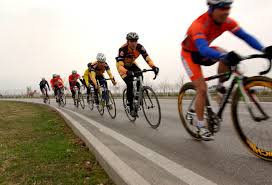 The lore among male cyclists is that riding a bike can interfere with men’s ability to father children and increase their risk of developing prostate cancer. I know! I’m married to someone who is passionate about bikes and biking riding.
The lore among male cyclists is that riding a bike can interfere with men’s ability to father children and increase their risk of developing prostate cancer. I know! I’m married to someone who is passionate about bikes and biking riding.
Today, we have three children; we certainly haven’t found any anecdotal evidence that cycling interferes with the male reproductive system. But I do occasionally wonder about his risk for prostate cancer. So a recent systematic review on the topic caught my eye.
Last month, Canadian researchers reviewed the evidence available on whether riding a bike affects levels of prostate-specific antigen, or PSA, a diagnostic marker for prostate cancer that is found in the blood. Their report is published in the journal Uro Today.
The researchers found eight studies with a total of 912 participants that looked at the relationship between cycling and PSA levels.
Six of the studies measured if there was a change in PSA following cycling over a period of time ranging from 15 minutes to a four-day cycling event. A meta-analysis of these studies found no significant increase in PSA after cycling. (Two studies did report increases in PSA, but when averaged with other studies in the analysis, their increases were not significant.) Another study included in the review found no significant difference in the PSA levels of professional cyclists compared with non-cyclists.
The take-home message: cycling does not affect PSA. The researchers do note there was a limited amount of evidence available, and no randomized-controlled trials, which is the gold standard of medical evidence. Therefore, more research is needed to fully confirm there is no link between cycling and prostate cancer.



Speak Your Mind